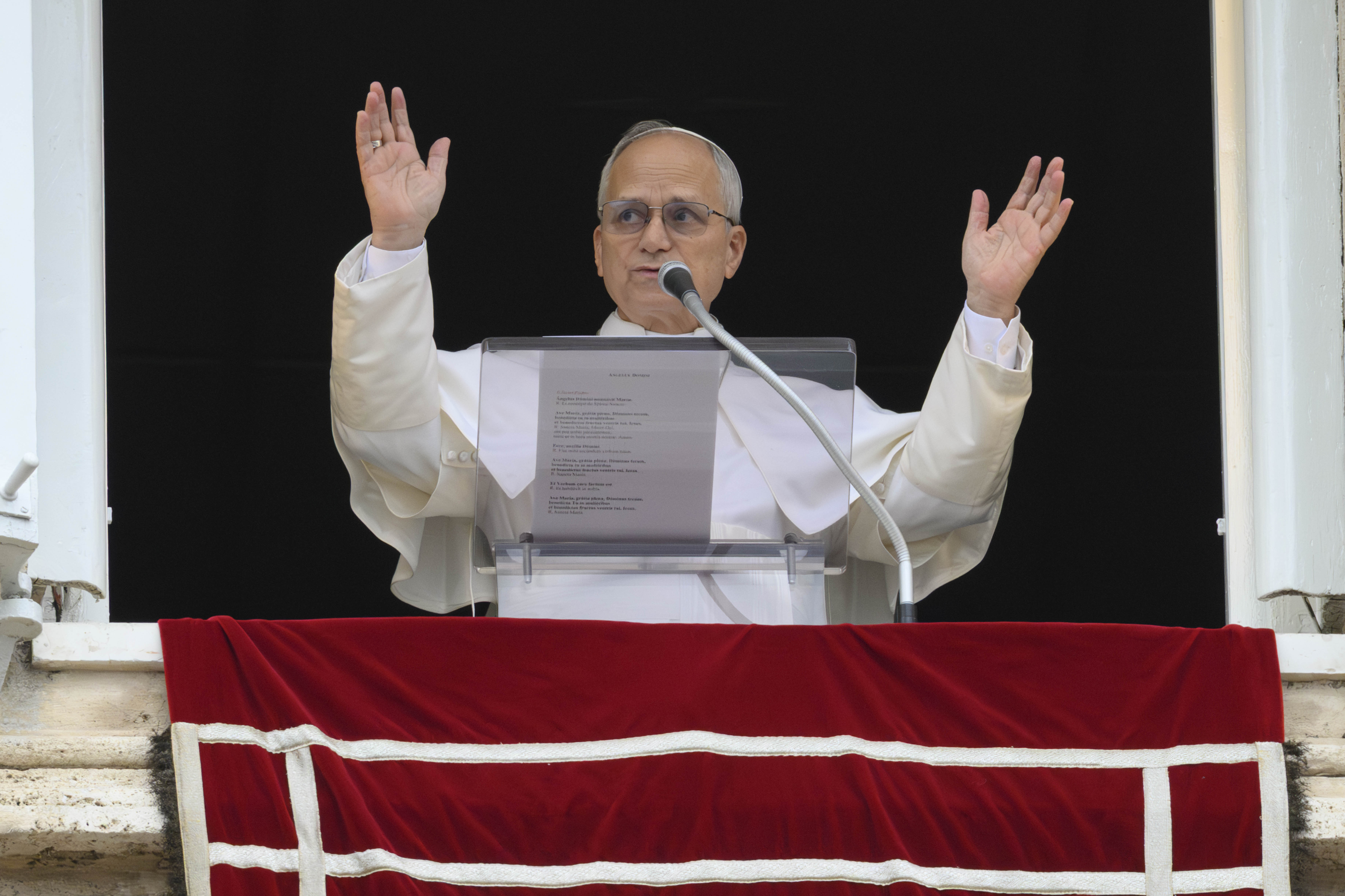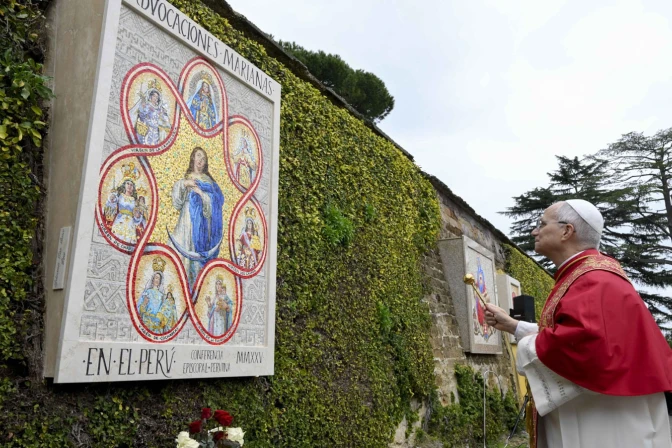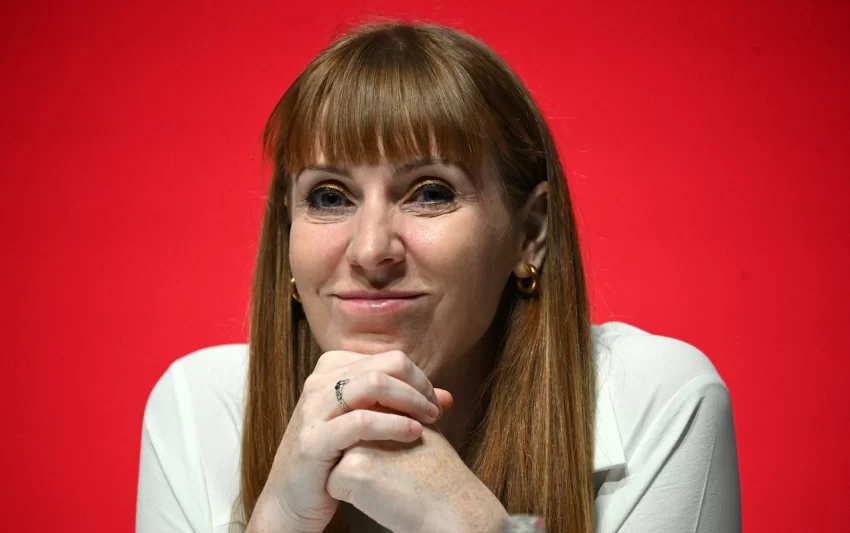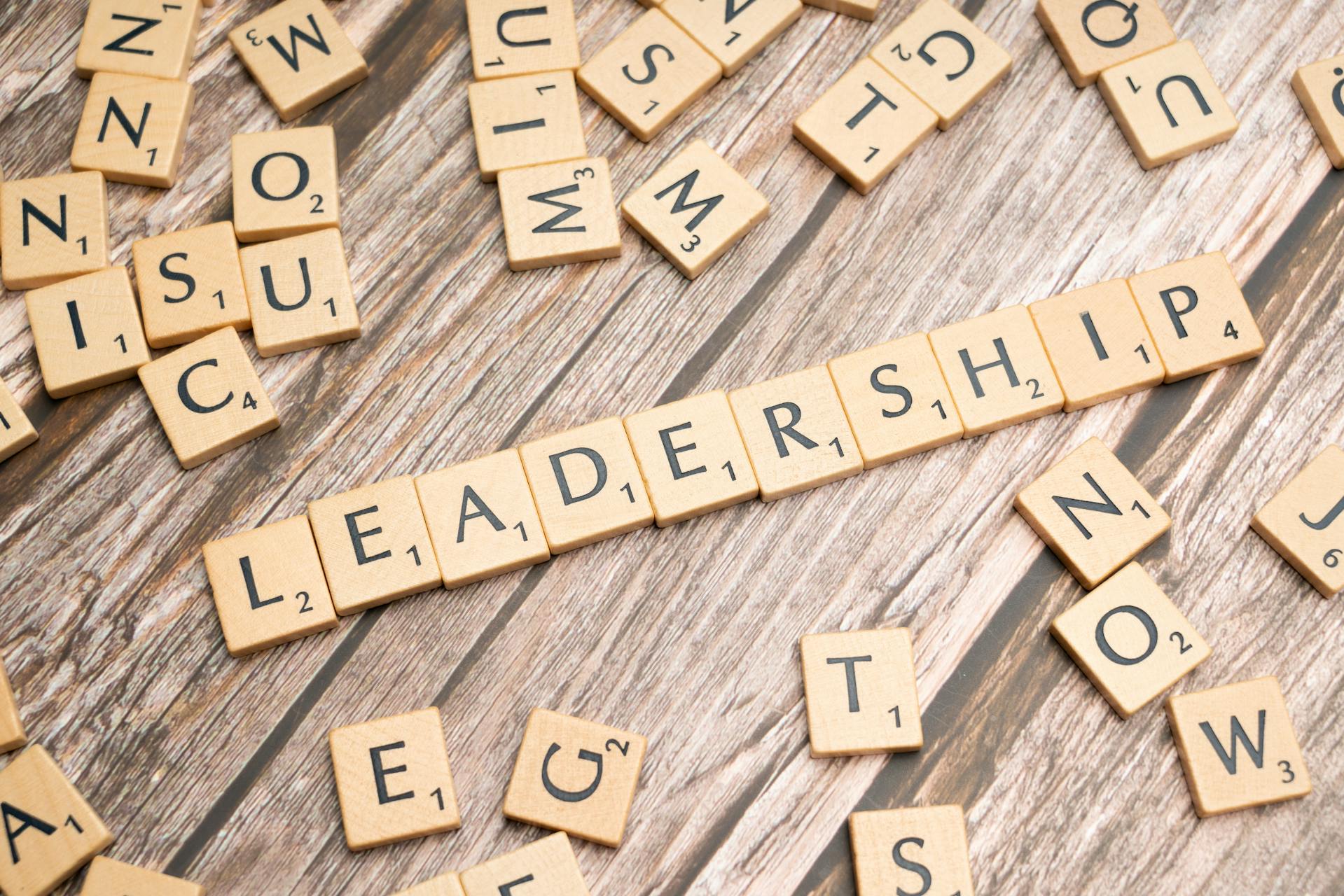Here’s what Ursula von der Leyen SHOULD say in her State of the Union (according to us)
The European Commission president’s big set-piece speech of the year is upon us. The State of the Union address is where Ursula von der Leyen sets out her vision for the year ahead, and it promises to be a very challenging 12 months, for her and for Europe.
So we tapped into the POLITICO newsroom’s deep knowledge of the political and policy realms and have attempted to preempt her speech by writing our own version. This is what we think she’ll say.
Remember, this is not the actual State of the Union but our version of it. As it says on all speeches sent to journalists ahead of time, “please check against delivery.”
Madam President,
Honorable members,
My fellow Europeans,
This comes at a pivotal moment for Europe. We live in a world that presents many challenges for our Union; challenges that we as Europeans will have to face together.
It is also a time for Europeans to decide which kind of future they wish to embrace; one of unity, one of strength, one of making our continent a better, more secure place; or one of conflict and dissent, in which we let external forces dictate the direction of our lives. There are people out there who want to destroy Europe; who side not with those of us who want a peaceful, prosperous Europe, but with our enemies.
I know which path I will choose. And I believe, as I am sure you do too, that the people of Europe will take the right road.
That is why, as we reflect on the State of our Union, we must acknowledge the advances we have made but also build the foundations of a more stable Europe, one that is less reliant on others in critical areas.
Ukraine and defense
Mesdames et Messieurs, les députés,
Russia’s brutal war against Ukraine has presented us with challenges not seen since World War Two.
As a result, we must take greater responsibility for our own security. That means investing in robust defense, safeguarding our people, and ensuring we have the resources to act when needed.

Investing in European defense means investing in peace and long-term stability for current and future generations. It also means boosting technological innovation, supporting European competitiveness, promoting regional development, and powering economic growth.
Our ReArm Europe plan gives member states greater flexibility to spend more on defense while ensuring that the European defense industry can produce at speed and volume. It will also allow the rapid deployment of troops and assets across the EU.
Red tape needs to be slashed to reach these aims. In a first step to simplify regulations, the Commission has already proposed a Defence Readiness Omnibus that will help untangle investment rules.
However, simply spending more is not enough. Member states need to spend better, work together, and prioritize European companies. The EU will support this by helping coordinate investments and making sure that defense equipment is ‘Made in Europe’.
Yet the challenges caused by Russia are great and varied, including the threats caused by hybrid warfare attacking European infrastructure, and the increasing spread of disinformation online. We already have plans for an early-warning system and rapid response teams to help hospitals fight off cyberattacks.
We can only overcome these problems by working together and, rest assured, Europe will also maintain diplomatic and, in particular, economic pressure on Russia.
This week we will publish the 19th package of sanctions, as we tighten the net on those who do business with Russia. Working with our partners in the U.S., we are continuing to limit Russia’s potential and showing Vladimir Putin that we are serious about bringing an end to this war. Because a predator such as Putin can only be kept in check through strong deterrence.
Our boost to defense is not just for our own security but for that of our allies and neighbors, and those who share our European values and wish to join the bloc.
That is why our message to Ukraine is clear: Your future is in the European Union and we have been, and will continue to be, at your side every step of the way.
Reviving the European economy
Meine Damen und Herren Abgeordnete,
As we look to advance our goals to boost European competitiveness, we have strong foundations such as our potential to unleash vast resources and latent technological and industrial power.
I asked Mario Draghi to deliver a report on how to revive the European economy. One year ago, he delivered that report and we have been delivering on his recommendations.

As part of the Commission’s plans for the next multiannual financial framework — an ambitious and dynamic budget that will help us meet the challenges of the future — we created a €409 billion cash pot to fund Europe’s industrial revival, allowing European firms to rapidly scale up and cut red tape when accessing EU funds.
And after a very clear signal from the European business sector that there is too much complexity in EU regulation, we launched the Omnibus Package to simplify legislation for sustainable finance, due diligence and taxonomy rules, and save companies €37 billion a year by 2029.
Mr. Draghi also recommended a single market for investment in the EU, and we have pushed forward plans for a Savings and Investments Union that would integrate supervision of capital markets and break down national barriers for the likes of stock exchanges and clearinghouses.
The other major challenge we face is trade.
The Commission has taken steps to deepen partnerships with trusted allies, partners and friends, which is an essential step in today’s uncertain geopolitical climate.
We have in recent weeks secured trade deals with the United States as well as with Mexico and the Mercosur bloc of Latin American countries. I urge everyone in this House who believes in making our Union stronger to support these trade deals as they, and others, will help businesses across the continent, opening up our markets and diversifying our exports.
The Mercosur deal alone opens up a market of over 280 million people for European exports, while the U.S. trade deal saves trade flows, saves jobs in Europe and opens up a new chapter in EU-U.S. relations.
Migration
Señoras y señores diputados,
Europe remains a place of safe refuge for those fleeing conflict and climate change. But I am of the firm belief that migration needs to be managed. That is why, after the launch of the Migration and Asylum Pact, we created a plan to streamline deportations, toughen penalties for rejected migrants who do not leave the bloc, and create hubs in countries outside the EU to house people awaiting deportation.
Migration is often exploited by populists for political gain. But we want to create a system that supports those with a genuine asylum claim while making clear the rules on forced returns, and incentivizing voluntary returns.
We also want to continue attracting talent from across the globe in areas where Europe is a world leader, such as in the life sciences and biotech spheres.
Migration is a key issue for European citizens, but there are others. The latest Eurobarometer survey shows that the No. 1 issue Europeans want the EU institutions to resolve is the cost of living crisis. Across the continent, families are struggling to pay for homes, and this Commission is determined to do everything in its power to ease the pressure they are facing.

Early next year, we will present Europe’s first-ever European Affordable Housing Plan, which will aim to accelerate the construction of new homes, the renovation of existing buildings, and ensure no one sleeps on the streets by 2030. To do so, we will move to put in new measures to limit speculation, introduce regulations for short-term rentals in stressed housing markets, and cut red tape to boost public and private investments in the construction of new homes.
People are also concerned about their energy bills and, here, the Commission is taking action. We must never forget Putin’s deliberate use of gas as a weapon, and that is why the EU will phase out Russian gas by 2027 thanks to the REPowerEU roadmap. As part of our deal with Washington, we will increase our energy imports from the U.S. over the next three years, a plan that is fully compatible with our medium- and long-term policy to diversify our energy sources and part of our commitment to the green agenda that so many in this House, myself included, fully support.
That is why we have drawn up the Grids Package, which will come out later this year and aims to turbocharge investment in power networks, which is the key bottleneck in the uptake of more renewables.
Artificial intelligence
Signore e signori, deputati,
The time is coming when artificial intelligence will match human thinking. That is why this week we published a report looking at the challenges and opportunities of AI. In Europe, we must take a leading role in shaping high-impact technologies.
We will make sure there is smart yet strategic regulation while creating the right incentives, including funding and investment, to prevent AI and other technologies from becoming destabilizing forces.
But we must not forget our traditional industries. The automotive sector is a critical pillar of the European economy, supporting more than 13 million jobs. The industry is facing increased competition from those who have benefited from unfair subsidies, and we have taken big steps to ensure this critical sector remains competitive and made in Europe.
With our Automotive Action Plan, we set a strong course for building European batteries and ensuring our companies are the technological leaders in autonomous driving. At the same time, we have made big strides in maintaining our climate goals while giving our companies the necessary flexibility to stay competitive.
The EU budget
Panie i panowie, posłowie,
We want a stronger European Union, stronger member states, and stronger regional and city governments, and we will work with local leaders — those closest to Europe’s citizens — to ensure they get the funds they need.
Cohesion Funds have helped build our Union with bridges and railways, public sports halls and libraries. Our cohesion policy is a central pillar of the European Union, and we will ensure that it continues to bridge gaps between regions, while also earmarking funds for the cities in which nearly three-quarters of all Europeans live.
But we also want to protect and promote one of the most important elements of Europe, its agriculture and farmers. With our budget proposal we are safeguarding direct payments to farmers, boosting the funding available to rural communities, and giving more money to national governments to spend on agriculture.
Farmers are essential to Europe, and what matters to Europeans matters to Europe.
We need a continent that is united, safe and prosperous. I believe we can rise to the challenge.
Long live Europe.
Thanks to Victor Jack, Sam Clark, Max Griera, Pieter Haeck, Jordyn Dahl, Aitor Hernández-Morales and Helen Collis.




















:quality(85):upscale()/2023/09/18/918/n/1922398/a1136b676508baddc752f5.20098216_.jpg)
:quality(85):upscale()/2025/10/09/670/n/1922283/00b944c868e7cf4f7b79b3.95741067_.jpg)
:quality(85):upscale()/2025/10/15/765/n/1922398/29c37a6e68efd84bb02f35.49541188_.jpg)
:quality(85):upscale()/2025/09/09/891/n/1922283/7222624268c08ccba1c9a3.01436482_.png)
















